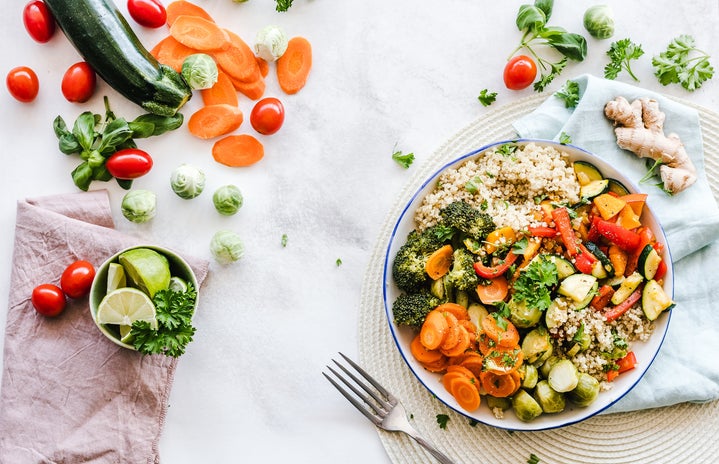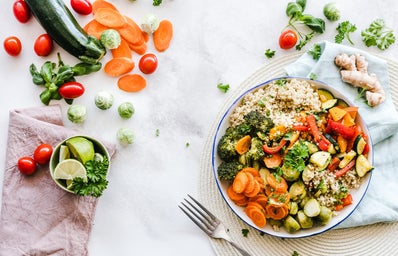When I tell someone that I’ve never eaten meat, I always get the same response, “What, not even chicken?”, “what about fish, you can eat fish right?”, and my answer is always the same, “no, I have never eaten chicken, or fish, or beef, or turkey. Yes, I get enough protein and no I don’t have an iron deficiency”. Believe it or not folks, I have never eaten chicken nuggets, and I’m ok with that. With a rise in people following vegan and vegetarian diets over the past few years, there is a growing awareness of the array of benefits these diets boast.
Throughout my whole life, I have followed a vegetarian diet- and I will forever thank my parents for that. Growing up without meat has fostered a love for flavourful food and a variety of cuisines- because arguably food with a lack of meat makes up for it through a variety of herbs and spices. Also, by never eating meat, my carbon footprint has been reduced significantly, which has helped me feel a bit less guilty about generational global warming. I’m not trying to tell you that you HAVE to be vegetarian or anything, I just think that following what I call a planet-conscious diet is a really good start.
To me, a planet-conscious diet involves food shopping and eating with the planet in mind- ethically or organically sourced meat and veg or less processed produce. After all, we are living in a century which is going to experience the extreme consequences of ignoring global warming for years, and the livestock industry is a huge contributor to greenhouse gas emissions, as well as deforestation and water pollution. It’s our generation who are the last hope at making a change- and a planet-conscious diet is an easy way to make a difference.
Transitioning to a vegetarian or planet-conscious lifestyle may seem daunting initially, especially if you are accustomed to a more meat-heavy diet. However, there are so many online resources and cookbooks available to help. I think that the 5:2 diet is a really good start; 5 days following your typical diet, and 2 days vegetarian/vegan. Just that alone already makes a difference to the planet.
Also, a more vegetarian lifestyle encourages people to explore a wider range of plant-based foods, which are typically rich in nutrients, and generally better for our overall health. These diets are usually high in fibre, vitamins, and antioxidants, which can lower the risk of chronic diseases such as heart disease, diabetes, and certain cancers. Also, plant-based diets tend to be lower in saturated fats and cholesterol, leading to improved cardiovascular health and weight management.
On top of all of these other benefits, having a more planet-conscious diet brings awareness to the ethical implications of eating meat products. Most meat that can be found in supermarkets is not sustainably sourced and often has been produced as a result of animal exploitation. Choosing to shop locally and ethically, almost guarantees that no animal would have been treated cruelly before the end of its life.
To conclude, my upbringing as a vegetarian has equipped me with so much knowledge about food, how it is sourced, and how ethical it is. I think that by embracing a planet-conscious diet, people will be able to decrease their environmental impact, improve their health and embrace more compassion towards animals. As awareness of how connected food choices and environmental sustainability are grows, planet-conscious diets have emerged as a practical and ethical solution for creating a healthier planet for future generations.


